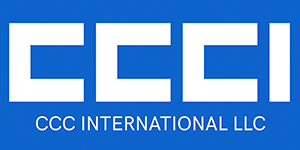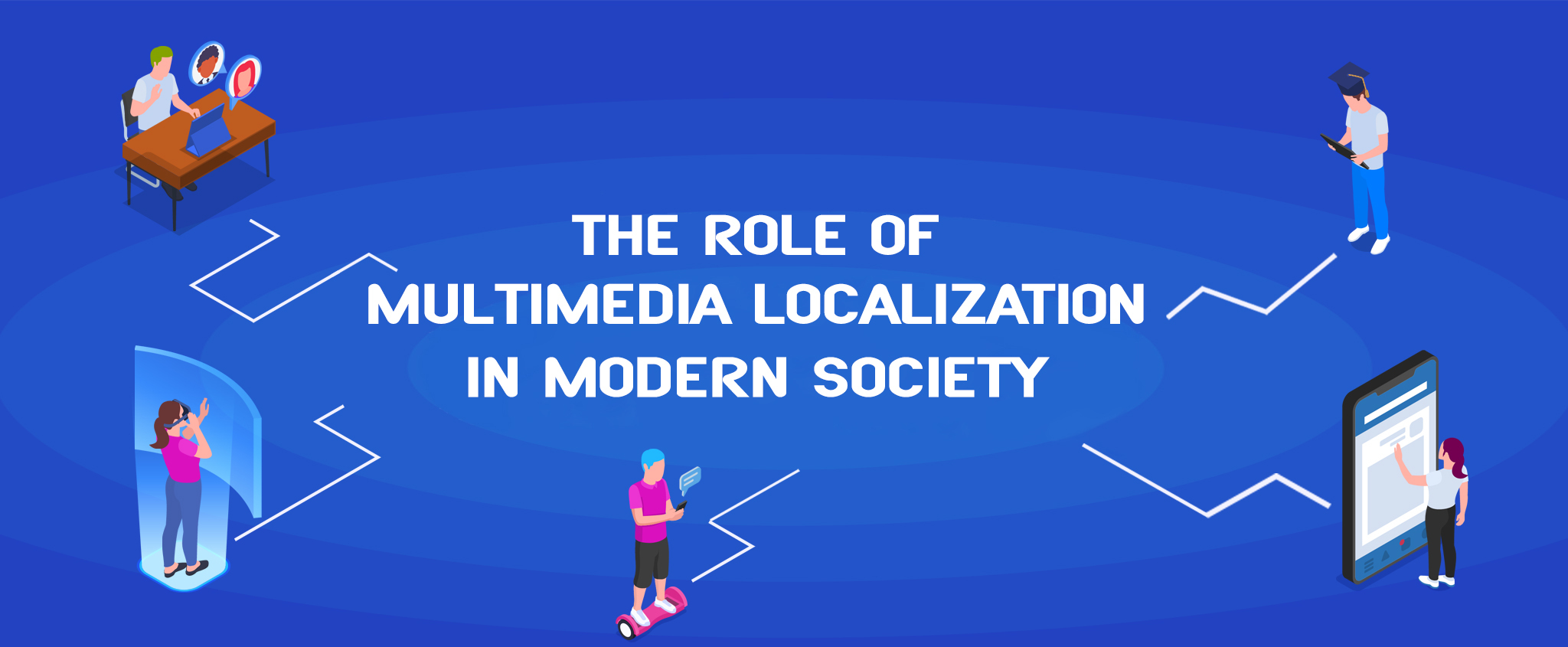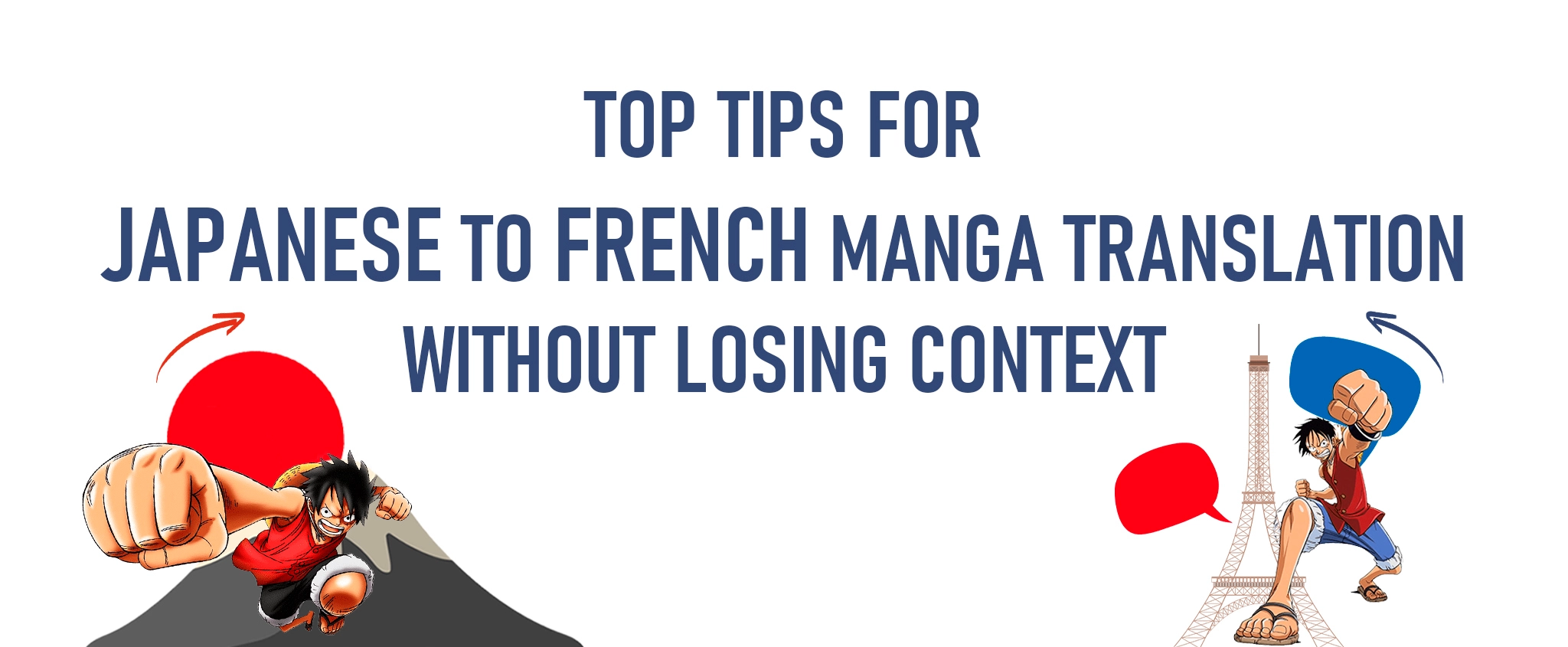The Role of Multimedia Localization in Modern Society
The world has become smaller since the advent of the internet and social media. With a few clicks, we can instantaneously access news and information from around the globe. No matter where we are, we know what’s happening in other parts of the world in real-time. And thanks to multimedia localization, we enjoy what we consume in our language.
The games you play, the movies you watch, and the TV shows you follow are all brought to you through localization. It’s also in the products and services you get from e-commerce websites and social media platforms. Even the user interface and app store descriptions of your favorite mobile apps are made available in your language courtesy of multimedia localization services!
In a globalized world, localization is more important than ever. It helps break down barriers and connect people from different cultures. It allows us to access content that would otherwise be unavailable to us.
Key takeaways:
- Multimedia localization is the process of adapting media content for specific markets, allowing broader audiences to access content regardless of language and culture.
- Multimedia localization services include dubbing, voice-overs, transcriptions, and audio and video production, depending on the business’s strategy.
- Media globalization allows businesses to reach more local and international audiences, which increases sales in the long run.
- Localization of media brings businesses to wherever their target and potential customers are.
Table of contents:
- What is Localization of Multimedia?
- What Are the Benefits of Multimedia Localization?
- What Are the Different Types of Localized Multimedia?
- What Are the Challenges of Multimedia Localization?
- CCCI—Multimedia Localization and Translation Company
What is Localization of Multimedia?
Multimedia localization is the process of adapting media content for a specific market. It’s about making content accessible to a broader audience by tailoring it to the target culture. It ensures that the content you consume is relevant and accessible to you, no matter where you are in the world. It’s beneficial and effective for businesses aiming to globalize their products and services. Media globalization allows companies to expand and reach international audiences.
What Are the Benefits of Multimedia Localization?
According to Statista, the media industry includes books and publishing, news, audio, video, film, and TV. The industry has changed because of rapid technological development, and we can maximize its potential by accessing content from anywhere in the world.
However, not everyone speaks or understands the same language. This is where localization makes media accessible to everyone, regardless of language barriers. Some of its benefits are:
Reach a Wider Audience
Localization allows you to let other people know that you can help them even if they speak a different language. It enables you to connect with domestic and international audiences, pushing you to enter new markets.
Increased Engagement
When people consume content in their language, they are more likely to engage with it. They are also more likely to share it with their friends and family, which helps you reach an even wider audience.
Build Goodwill and Trust
In any business, goodwill and trust are essential. When you localize your content, you tell your audience that you care about them and their needs. You’re also showing that you’re willing to go the extra mile to ensure they have a good experience with your products or services.
Improved Customer Satisfaction
Localization can help you better understand your target market. It also allows you to provide relevant and useful information. As a result, you’re likely to see an increase in customer satisfaction. Knowing what your customers want and need makes it easier to provide for them!
Increased Sales and ROI
The bigger your audience is, the more potential customers you have. With localization, you can tap into new markets and reach more people. In turn, it can lead to increased sales and a higher ROI, especially when you continuously work to improve customer satisfaction rates.
Increased Competitive Edge
In a global market, it’s not enough to be good — you must be better than your competitors. Localization can help you stand out from the rest by providing a more personalized experience to your target market.
Multimedia localization services bring you to all corners of the world, wherever your potential customers are. Localization is always the first step whenever you believe you’re ready to go global.
What Are the Different Types of Localized Multimedia?
Media is everywhere, and it comes in many different forms. Localization can maximize any creative media content, including:
Films
Imagine watching a Japanese film when you’re American, and there are no subtitles. Not only would you not understand what’s going on, but you’d also miss out on all the cultural references. Localization ensures that everyone can understand the film, regardless of their language. It’s not just about translating the dialogue; it’s also about making sure the movie makes sense in the new culture.
TV Series
Like films, you must localize TV shows to make them make sense to the new culture. It includes translating the dialogue, adapting the setting, and ensuring that the show is appropriate for the new audience. You can also use dubbing to make the show more accessible! TV content has become more popular since the pandemic hit, so this is a great time to localize your content.
Video Games
Localization is an advantage for video games because it helps players immerse themselves in the game. They can understand the story, the characters, and the objectives. It also ensures that the game is appropriate for the new culture and that any offensive content is removed. Many video game developers now turn to localization services to make their games more accessible to new markets. They include localized customer support, in-game text, and audio.
Note: Multimedia localization services include dubbing, lip-synchronization, and voice-overs. Transcriptions, script translations, and subtitling are also powerful for some media content. Businesses can also opt for audio, video, and animation production, depending on their marketing strategies.
Music
Music is a powerful form of media that can connect with people on an emotional level. When you localize music, you ensure that you preserve the lyrics and the meaning. You can also adapt the music to better suit the new culture.
Publishing
Translate books, magazines, and other printed materials into different languages and let new readers enjoy your content. Classic novels like Anna Karenina and Harry Potter have reached all parts of the world through localization! Localization is especially popular for manga, webtoons, and other comics. It allows readers to immerse themselves in the story, even if they speak an entirely different language.
Advertising and Marketing Campaigns
It would be best if you localized advertising and marketing campaigns to make them effective. They should be relevant to the new culture and capture the target audience’s attention. Many multinational companies use localization to create global advertising campaigns, corporate videos, and product packaging.
What Are the Challenges of Multimedia Localization?
Translation is just the first step; you must also ensure that the localized content is culturally relevant. Here are the biggest challenges of localization:
Communication
When localizing content, you must ensure that the meaning is conveyed correctly. Translate and understand the context and culture. A media localization company can help close the communication gap and ensure that your content is accurately localized.
Pro Tip
Pro Tip
Work with a company that knows your product’s value. They must understand the impact you want to make and the message you want to communicate. Any multilingual company can work on what the projects entail. Still, not all can understand and capture the real meaning of your content.
Cultural Nuances
Keeping the original meaning while ensuring it’s also appropriate for the new culture is challenging. A lot can be lost in translation, especially when it comes to jokes and puns. Excellent multimedia localization services will deeply understand the target culture and how to adapt the content accordingly.
Translation Errors
Localization is a complex process, and errors are always possible. Remember: language is fluid, and words can have multiple meanings. Once you get lost in translation, it’s hard to go back. That’s why it’s crucial to work with a professional media localization company that can guarantee accurate translations.
Many localization and translation companies promise fast turnaround times and low costs. But these companies may cut corners, which can lead to errors in your content. Inaccurate translations can damage your brand and cost you more in the long run. It’s essential to find a multimedia localization company you can trust. And that’s CCCI!
CCCI—Multimedia Localization and Translation Company
CCCI has over ten years of experience in the translation and localization industry. Like you, we understand the dream of every business to go global. We are a team of expert translators, proofreaders, and editors who can accurately translate your content into over 30 languages. We also deeply understand different cultures, so we can localize your content while preserving its original meaning.
CCCI knows that every business is unique, with different goals and objectives. We will work with you to create a customized localization solution that meets your specific needs. And because we’re a one-stop shop, we can handle all your multimedia localization needs, from specialized translations to data collection, anime translation, audio clips translation services.
CCCI is ready to help you take your business global. Contact us today for a free consultation!






